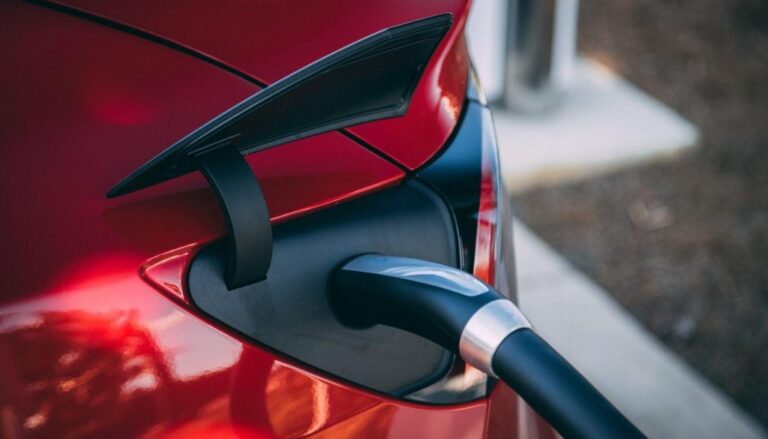As with any technology, once people start adopting it, the pace at which it develops rises considerably – it wasn’t that long ago that electric vehicles were the poor relation in modern transport, where mileage and battery life were their stumbling blocks when it came to practicality.
Today’s electric vehicles are far removed from these early incarnations, as batteries take less time to charge, and range is almost enough for all but the longest journeys – models from Tesla now comfortably reach the 200-mile mark.
Battery technology is also improving daily, be it performance, longevity, or the amount of time taken to reach maximum charge – current technology is likely to be outdated within months.
Charging Time
To this day, however, the biggest drawback when it comes to electric vehicle ownership is the recharge time.
Fortunately for us, researchers in America are developing a membrane-less battery, which uses fluid electrolytes to provide power, meaning that a recharge could theoretically take as little time as it would fill the petrol tank – you simply drain and replenish the fluids.
Not only will this significantly cut down charge times, but these batteries will also additionally pack more of a punch, meaning increased range (and power!).
Autonomous Driving
The advent of electric vehicles and autonomous driving modes has shared a principally parallel timeline, leading many to associate EVs with smart driverless technology.
Indeed, a great number of EVs do offer some sort of smart technology, from self-park functions to assisted autonomy. However, it’s worth noting that the current legislation states that the driver must be in full control, i.e. in the driving seat, at all times ready to take over in the event of an emergency.
Before You Buy an Electric Auto
There is no doubt that EVs are becoming a realistic alternative to fossil-fuelled vehicles, but much like you wouldn’t rush out to buy a regular car or a motorbike, you need first to weigh up the pros and cons of your investment. Otherwise, buying an electric car could prove to be a financial misstep.
Furthermore, while it’s true that charge times have been reduced, you could still be looking at a few hours of charging for a relatively limited range. Understanding how many miles you need each day will dictate which particular EV model is the right choice for you and whether an electric vehicle is actually suitable for your needs.
Help to Buy
Prices are still higher than a conventionally-fuelled vehicle, but there are a number of grants and schemes available to the buyer to help with the cost, for instance, the British government contributes up to £4,500 towards the purchase of a new EV.
To get the most out of the deal, it’s worth taking a look around for the funding opportunities in your area before committing to a buy.
One final consideration – for getting the practicalities regarding mileage and charging times, a fully electric vehicle could prove tricky to maintain without a dedicated parking spot. Trailing a charging lead halfway around the neighborhood to charge your brand-new EV isn’t what you signed up for!
Once you have booked your new car, the most essential thing is to get a license plate registration for it. ShowPlatesWorld offers next-day delivery number plates for your new car that can be ordered online in a few simple steps.
The Future
There is absolutely no doubt that the days are numbered for diesel and petrol-engined vehicles – certain European governments have already announced that all diesel and petrol cars will be banned from sale (new car sales) by the year 2040.
Local authorities are also looking to implement clean air zones, meaning that diesel vehicles, in particular, won’t be welcome. This, unfortunately, amounts to further vehicle taxation, but the potential challenges associated with this will most likely be addressed in the form of diesel scrappage schemes. How well that will work in the real world though, is yet to be seen.
Conclusion
For many years, electric vehicles were considered to be a somewhat comical alternative to the internal combustion engine – too expensive, too slow, with not enough range, and prolonged charging times that required extensive planning for trips beyond the perimeter of the everyday commute.
However, with technology moving at such a pace, these stereotypes are certainly looking outdated. The naysayers have been forced to reconsider their stance yet again, in light of what the electric vehicle has been able to achieve on its journey to market dominance.
While many manufacturers are implementing an electric model or two into their range, innovators like Elon Musk (Tesla) have fully embraced the change and are quite literally driving development forward, and not just for personal gain.
An electric vehicle today may still seem somewhat of a compromise when compared to its mean, fossil-hungry older brothers, but with almost daily groundbreaking advancements in the field, the day of redemption is near. Soon enough, your long-term vision could see you on the winning side of the argument.
Author – Giles Kirkland, an experienced car expert, is passionate about all four-wheeled vehicles. He loves researching various aspects of the auto industry and tech, from cyber security in self-driving cars to the science behind electric car batteries. Giles’ articles are available on his Twitter and Oponeo blog.
